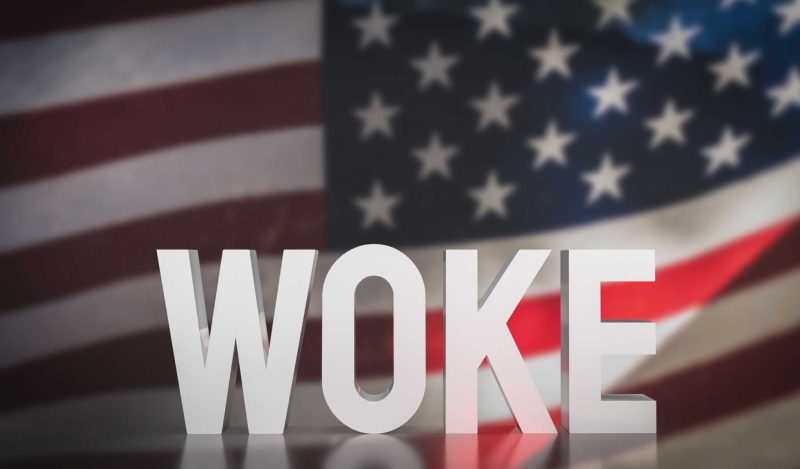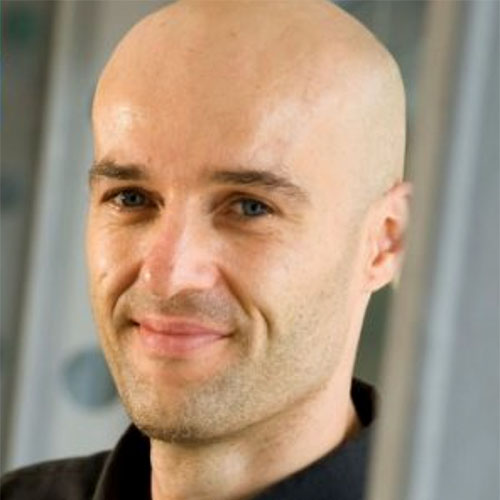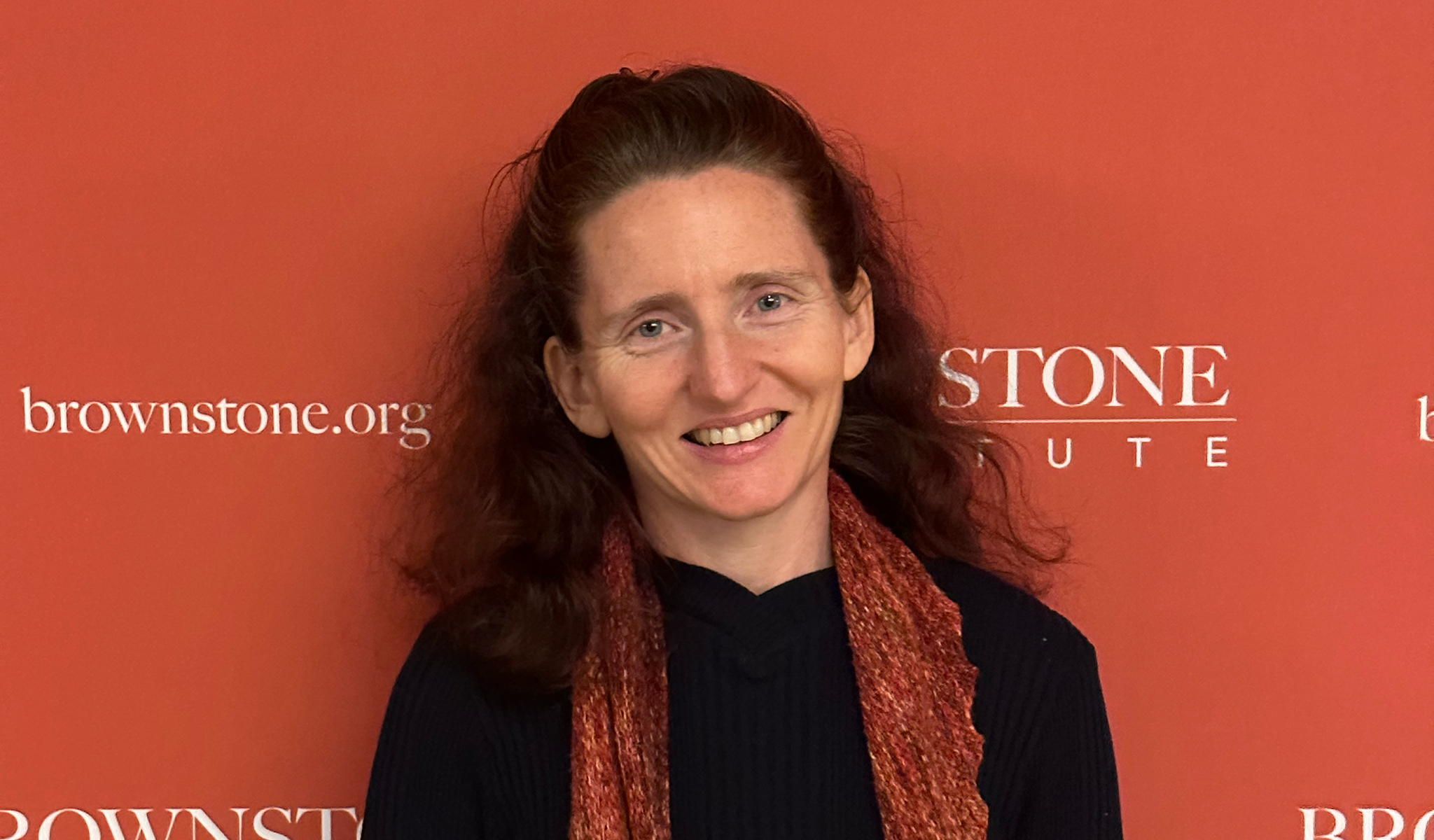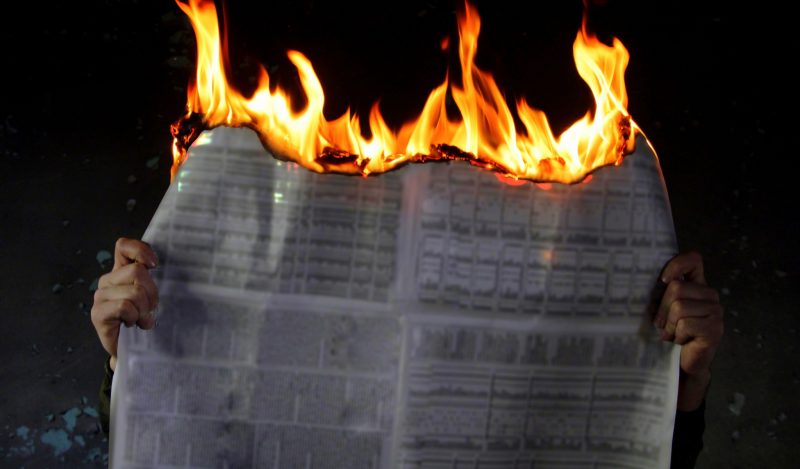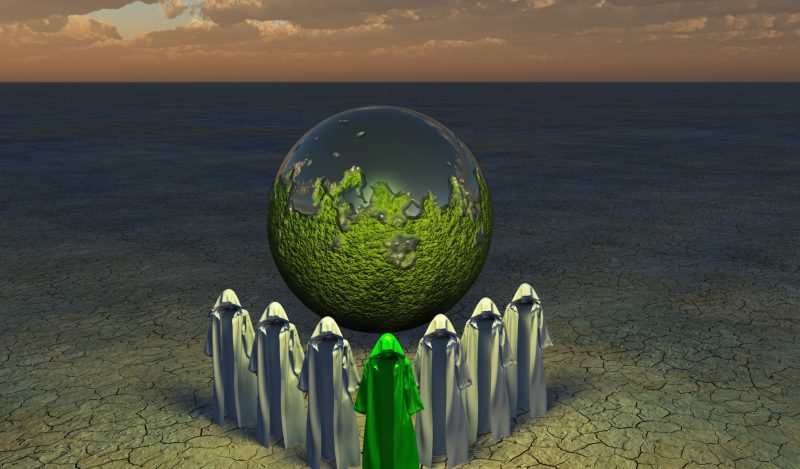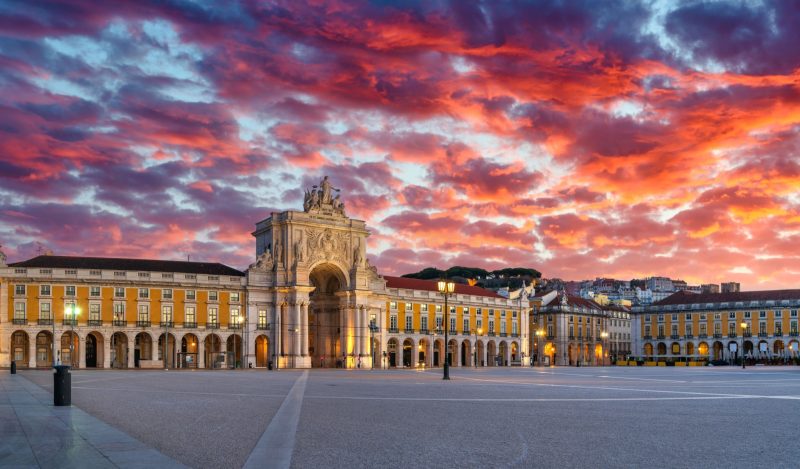The modern phenomenon of ‘woke’ is hard to pin down. Is it a movement, a religion, an attitude, or a lifestyle? Here we offer our own definition that places woke in the broader historical and political story of the West.
We start with a list of attitudinal elements that most people would agree should count as part of woke. In this we are spoiled for choice, with a whole smorgasbord of examples from the personal, political and corporate spheres from which to discern the core elements. Here are our top five:
- Identity theft. This is best exemplified in gender appropriation, whereby anyone who says or believes they are a woman is indeed a woman and must be treated as such by others, at pain of social disapprobation and even legal punishment. The woke lack respect for previous identities.
- Illiberalness. The woke perspective in many areas features a suspension of belief in public debate and the value of diverse viewpoints, to the point of being willing to invade and sabotage public spaces in which such debates and viewpoints are aired.
- Cancel culture. We see the cancellation imperative of woke in the destruction of symbols and rituals of the previously dominant Western culture: felling monuments, defacing art, negating traditional days of celebration, using disruption and chaos to draw attention to causes, and targeting the careers of those who defend the pre-existing culture.
- Victimhood. Woke places primacy in the public sphere on helplessness and victimhood, preferably victimhood resulting from perceived injustices at the hands of traditional Western culture.
- Alarmism. Woke promotes the idea of the collapse of civilisation due to human-induced threats (like climate, viruses, or the Chinese government) and adopts ever new totems allegedly to ward off that collapse.
Identity theft has always been a go-to in the toolbox for hopeful cultural coup d’états, as for example when the Christians outfitted their Devil with the trident of the Greek god Poseidon and the goat feet of other religions, bolstering their own credentials while marginalising the older culture. Illiberalism is a staple of communism and fascism, both Western inventions. The absolutism of cancel culture is a mutation of traditional liberalism. Victimhood is an old Christian meme. Alarmism has been the bread and butter of subsidy-dependent international groups for centuries.
These five elements have long antecedents in our cultural history. Yet they were not of prime importance in mainstream Western culture, say, 30 years ago, so their collective centrality in today’s discourse is novel. Woke’s incessant harping on about tolerance, acceptance, inclusivity, and caring is all posturing, and in fact is the 180-degree opposite of the reality of its actions and reactions. Yet wearing that mask helps it exploit the naivete of those who previously adhered to other faiths.
Woke Activities 1: The Raid
The primary activities of the woke movement collectively can be viewed as a territorial raid: a takeover of the cultural and economic spaces previously occupied by other groups and cultures. This is a historically normal occurrence in times of turbulence, when opportunistic groups take advantage of distracted populations to snatch away privileges and undermine the existing culture. In this sense, the woke phenomenon is just an extension of other quite recent raids in the West.
For example, the latter-wave feminist ideology of resistance to ‘the patriarchy’ can be seen as an attempt by dominant white Western women to usurp the privileges of dominant white Western men. ‘Intersectionality’ can be viewed similarly as an attempt, mainly by white Western women, to take down white Western males by allying themselves with other ‘oppressed’ groups, because, supposedly, they were all victimised by white Western males.
Today’s woke movement ups the ante by advocating the takedown of all things Western, including white females, who have thereby been hoisted on their own petard and are thus feeling rather betrayed. Their raid on the privileges of their men has been overtaken by a much bigger raid that the very men they had been targeting would previously have combated.
In the vanguard of the current usurpation are young white Westerners, showing the economic theme of woke: it is an attempt of young white youth to muscle privileges away from ‘old whites.’ Once again this kind of dynamic is very normal in royal courts, seats of power that typically attract many hangers-on who have nothing genuinely productive to do but instead just fight over privileges.
Woke Activities 2: The Religious Experience
Woke, with its alarmism and cancel culture dimension, is an outgrowth of a kind of spiritual journey by a new generation that is searching for new overarching religious narratives. Consistent with the central tradition of Western mainstream religion, the new woke religion follows an absolutist mould: just as the first commandment in the Bible is to ‘have no other God but me,’ woke is similarly absolutist and violent towards anyone refusing the ‘one god’ dictated by woke in an area targeted by woke.
Disciples of woke have abandoned the ideology of freedom of faith and speech that typified the Enlightenment, and have instead travelled back to the Middle Ages for their inspiration. Tearing down the symbols and rituals belonging to old gods and defeated groups is (like raiding) a historically normal activity of rebels and would-be ascendant groups in Western culture, or any culture really.
Woke Activities 3: Parasitism
Woke feeds like a parasite not merely on the successes of previously dominant groups and religions of the West, but on anything healthy and fertile in the West. We see this in its attack on families, its attacks on positive historical images of whole countries, and its attacks on actual health embodied in the peddling of unhealthy lifestyles (for example, advocating masks and safetyism) and the celebration of unhealthy body types (for example, those of obese or gender-converted people). During covid especially we saw this parasitism on success in woke’s attack on science, as it instead celebrated the ‘truths’ put out by authority figures. Diversity is healthy, and accordingly we see woke attacking it too (though its adherents would never admit this), whenever it seeks to cancel diverse opinions.
The Telling Case of Posie Parker
The woke phenomenon has had bittersweet moments. Take the experience of Posie Parker (Kellie-Jay Keen-Minshull) in New Zealand. Posie travelled the world loudly proclaiming in demonstrations that “a woman is an adult human female,” essentially implying that womanhood is a biological fact and not a choice any adult can make, thereby defending the territory of women in Western culture.
This was in open defiance of the ideology that self-identification has primacy over biology, leading New Zealand’s immigration minister to call Posie’s views repugnant. A violent mob of over 1,000 ‘trans activists’ in Auckland intimidated Posie and her supporters, leading the Guardian (arguably the ‘home of woke’ in the media) to call her an anti-trans activist and to publish an opinion calling her an ”agitator” and her language “hateful” and “dangerous.” All this violence and virtue-signalling was neatly summed up by Brendan O’Neill in the Spectator as “a ritualistic shaming of a witch, a violent purging of a heretic.” Quite so.
The irony of the whole thing was that it took burly male police officers to save Posie from the mob. Posie’s main allies in the last few years have been second- and third-wave feminists whose principal enemies until recently were masculine white men – i.e., the very types of people who came to her rescue: men who took their ancient patriarchal role of protectors seriously. The lesson of being careful what you wish for was delivered in spades to any woman watching.
Our Definition of Woke
Assembling the attitudes and activities that characterise the woke phenomenon, we arrive at the following definition of woke:
Woke is a movement that invades and usurps public spaces and economic roles occupied by dominant cultural forces and group identities, displaying moral absolutism, intolerance, narcissism, victimhood, identity theft, alarmism, and the appearance of tolerance and diversity instead of their substance.
Our definition is quite a mouthful, but that is hard to avoid when trying to capture a complex, large-scale sociological phenomena. If we were writing a dictionary for the common man and needed a simple one-liner, we might write that woke is a “sterile death cult of unproductive whining kids who find each other in a raid on the adults they hope to replace.”
The Politics of Woke
On the upside, a movement like woke could, in our judgment, be crushed by money in an instant. If Big Money wanted to, it could use mass media and political tools to steamroll woke within weeks, and would moreover be cheered on as it did so by the vast majority of the population.
Why doesn’t this happen? For the simple reason that the activities of woke fit the economic interests of large corporations, international agencies, and the globalist class. The enemies of the globalist class are patriotism and virile communities capable of seeing the truth and organising themselves against the globalists. The globalists then naturally back woke, following the ancient Arab saying that ‘the enemy of my enemy is my friend.’ There is also a clear economic rationale: by aligning themselves with the fluffy face of woke, corporations, NGOs, and international agencies can get more business, more money and more power. (In recent times, we have seen a few corporations – like Anheuser-Busch – fall afoul of their own eagerness to jump on the woke bandwagon, but those scant examples have not yet delivered enough pushback to reverse the movement.)
Some have tried to trace lines of international corporate funding (e.g., via woke scoring systems and the ESG investment system), an ongoing investigative task made difficult by a lack of financial transparency rules.
Still, what can be observed fits with economic incentives. The woke are being given resources and exploited by the globalist class as a kind of fascist shock army to assist in dividing and ruling the populations of the West, while the globalists dream of eventually establishing a technocratic neo-feudal empire that they control.
The globalist class – about whom we have written previously – is playing with fire when it aligns itself with woke. It is betting that its members can personally escape the downsides of woke, and that it can squash woke when it is no longer useful, both of which are probably fair bets.
Yet the globalists are also wagering that the woke agenda will not undermine the rule of law on which their own property rights depend, or the strength of the whole West on which their international status depends. This is a far riskier wager, akin to burning down a house in order to evict the occupants and then live there yourself.
Woke’s lust for destruction has emerged from the heart of a decaying Western society. Woke is an attack on the most potent and healthy elements of that society, backed by the super-rich who seek more control. At once a sterile new religion of the useless to celebrate uselessness, a fanatical doomsday cult, and a thief of what is good, healthy and self-affirming, woke represents in four letters what ails the West, and the antithesis of what is needed to heal the West.
Published under a Creative Commons Attribution 4.0 International License
For reprints, please set the canonical link back to the original Brownstone Institute Article and Author.
